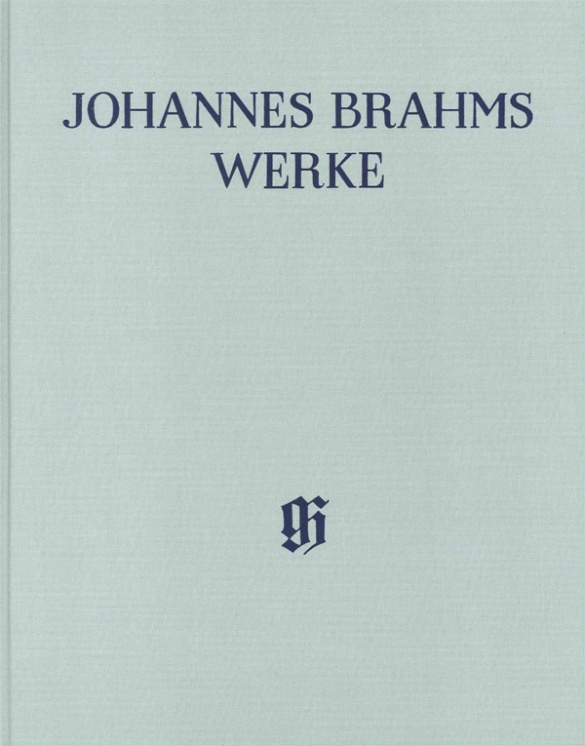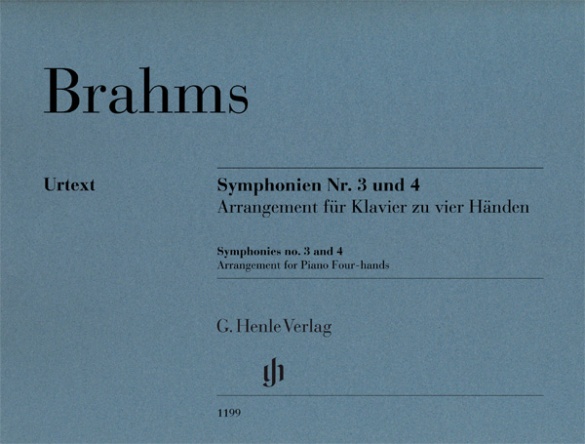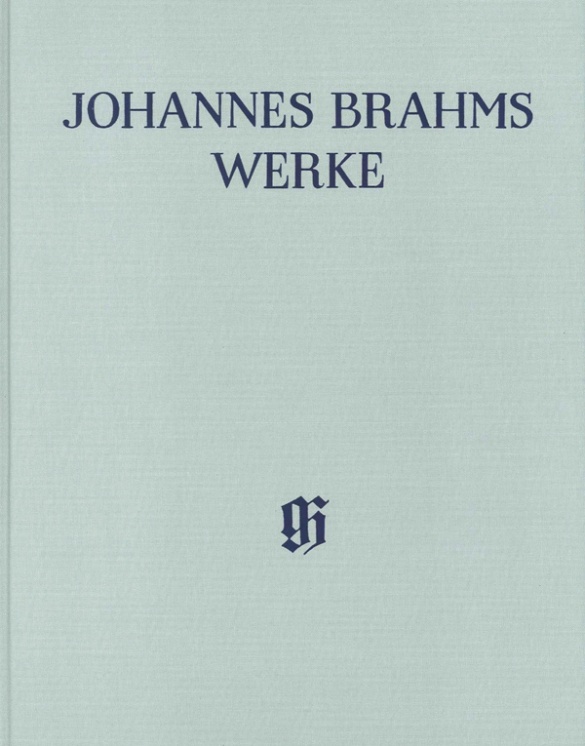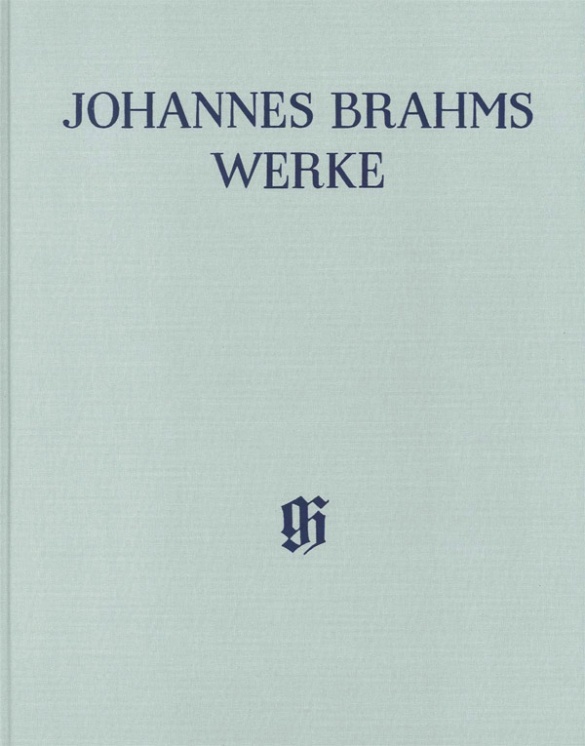

Johannes Brahms
Ser. 9, Vol. 2 | Arrangements von Werken anderer Komponisten für Klavier zu zwei Händen oder für die linke Hand allein
Content/Details
About the Composer

Johannes Brahms
His significant output comprises chamber music, piano works, numerous choral compositions and songs (including settings of folk-song lyrics), as well as large-scale orchestral works in the 1870s and 1880s. His compositions are characterized by the process of developing variation. He is considered an antithesis to the New German School around Liszt, and an advocate of “absolute” music.
| 1833 | Born in Hamburg on May 7, the son of a musician. His first piano instruction with Willibald Cossel at age seven, then with Eduard Marxen; first public performances from 1843. |
| 1853 | Concert tour through German cities; he meets Schumann, who announces him as the next great composer in his essay “Neue Bahnen” (“New Paths”). A lifelong, intimate friendship develops with Clara Schumann. |
| 1854–57 | Piano Concerto No. 1 in D minor, Op. 15. |
| 1857–59 | Choir director, pianist, and teacher at the royal court in Detmold. |
| 1859–61 | Director of the Hamburg Women’s Choir. |
| 1860 | Manifesto against the New Germans around Liszt. |
| 1863 | Cantata “Rinaldo,” Op. 50. |
| 1863–64 | Director of the Wiener Singakademie. |
| 1868 | Partial performance in Vienna of “A German Requiem,” Op. 45 (the complete work premiered in Leipzig in 1869) |
| 1871–74 | Artistic director of the Gesellschaft der Musikfreunde (Society of Friends of Music) in Vienna. |
| 1873 | Haydn Variations, Op. 56a, for orchestra. |
| from 1877 | His symphonic output begins with the Symphony No. 1 in C minor, Op. 68 (begun 1862); composition of the Symphony No. 2 in D major, Op. 73; the Symphony No. 3 in F major, Op. 90 (1883); and Symphony No. 4 in E minor, Op. 98 (1884–85): cantabile themes, chamber-music-like style. |
| from 1878 | Travels in Italy. |
| 1878 | Violin Concerto in D major, Op. 77, for Joseph Joachim. |
| 1881 | Piano Concerto No. 2 in B-flat major, Op. 83, with a scherzo movement. |
| 1886 | Honorary president of Vienna’s Tonkünstlerverein (Association of Musicians). |
| 1897 | Four Serious Songs, Op. 121. Dies in Vienna on April 3. |
Product Safety Informations (GPSR)

G. Henle Verlag
Here you can find the information about the manufacturer of the product.G. Henle Verlag e.K.
Forstenrieder Allee 122
81476 München
Germany
info@henle.de
www.henle.com
Der Notentext entspricht heutigen Standards; einzelne Aspekte wurden stillschweigend ergänzt, andere wiederum wie ursprünglich belassen. So erhält der Benutzer des Bandes einerseits ein vertrautes modernes Notenbild, das gleichzeitig auf die Schreibgewohnheiten des Komponisten Rücksicht nimmt. Dies unterstreicht u. a. den Charakter der JBG, der wissenschaftlich-kritische mit praktischen Kriterien in sich vereint. Die Edition vermittelt dank der akribischen Quellenarbeit der Herausgeberin Valerie Woodring Goertzen ein nachvollziehbares Bild von Brahms’ Schaffen auf dem Gebiet der Arrangements von Werken anderer Komponisten. Die umfassende Recherche, die sich auch in der klaren Gliederung und im Verhältnis der einzelnen Abschnitte des Bandes untereinander widerspiegelt, ermöglicht dem Benutzer einen leichten Zugang zum Notentext. Der stets nachvollziehbar dargestellte Umgang mit den Quellen lädt zudem ein, sich mit dem Hintergrund zur Entstehungs- und Rezeptionsgeschichte näher zu beschäftigen.
Die Tonkunst, 2019recommendations
autogenerated_cross_selling
Further editions of this title





